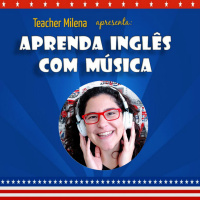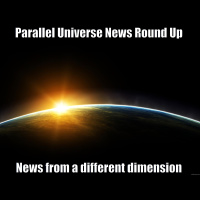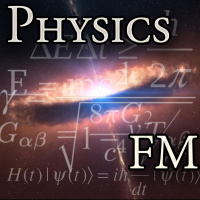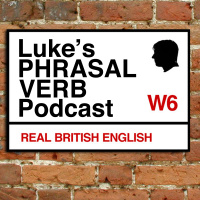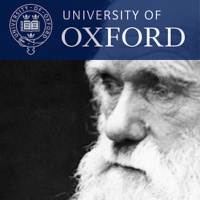Sinopsis
Interviews with Mathematicians about their New Books
Episodios
-
Eli Maor, “Music by the Numbers: From Pythagoras to Schoenberg” (Princeton UP, 2018)
18/07/2018 Duración: 55minMost of us have heard of the math-music connection, but Eli Maor’s Music by the Numbers: From Pythagoras to Schoenberg (Princeton University Press, 2018) is THE book that explains what that connection is, and how both math and music connect to both physics and biology. There are wonderful anecdotes detailing the lives and creations of many of the great musicians, mathematicians, scientists, and philosophers who have contributed to creating music and our understanding of it. If you love music – and who doesn’t – you’ll enjoy reading this book, even if you don’t love math. And maybe, even if you don’t love math, you’ll have a greater appreciation of it after you finish the book.Learn more about your ad choices. Visit megaphone.fm/adchoices
-
Vicky Neale, “Closing the Gap: The Quest to Understand Prime Numbers” (Oxford UP, 2017)
12/12/2017 Duración: 54minToday I talked to Vicky Neale about her new book Closing the Gap: The Quest to Understand Prime Numbers (Oxford University Press, 2017). The book details one of the most exciting developments to happen in the last few years in mathematics, a new approach to the Twin Primes Conjecture. The story involves mathematicians from five different centuries and probably every continent except Antarctica. Vicky does a great job of telling not only what the problem is and how work on it has proceeded, but also how mathematical research has evolved given the resources available in the twenty first century. If you like numbers, you’ll love this book—and if you don’t like numbers, maybe this book can help you appreciate them.Learn more about your ad choices. Visit megaphone.fm/adchoices
-
Alfred Posamentier et. al., “The Joy of Mathematics: Marvels, Novelties, and Neglected Gems That Are Rarely Taught in Math Class” (Prometheus Books, 2017)
16/10/2017 Duración: 56minThe book discussed here is the The Joy of Mathematics (Prometheus Books, 2017), whose lead author, Alfred Posamentier, is our guest today. The subtitle Marvels, Novelties, and Neglected Gems That Are Rarely Taught in Math Classdescribes the book nicely. Much of the book can be read by someone with only a couple of years of high school math, and the book does a terrific job of showing the reader why those of us who love math do so. We like arithmetic, algebra, geometry, infinity, and the counterintuitively surprising, and the book contains lovely examples of all of these. Enjoy!Learn more about your ad choices. Visit megaphone.fm/adchoices
-
Brian Clegg, “Big Data: How the Information Revolution Is Transforming Our Lives” (Icon Books, 2017)
19/09/2017 Duración: 53minBig Data: How the Information Revolution Is Transforming Our Lives (Icon Books, 2017), by Brian Clegg, is a relatively short book about a subject that has emerged only recently, but is rapidly becoming a significant force in the evolution of society. Most of us have heard the term “big data,” but many of us erroneously assume that its just a lot of little data. It’s considerably more than that, and Big Data, which is an easy and fun read, serves as a terrific introduction to a topic which has an ever-increasing impact on many aspects of our lives.Learn more about your ad choices. Visit megaphone.fm/adchoices
-
Brian Clegg, “The Reality Frame: Relativity and Our Place in the Universe” (Icon Books, 2017)
29/06/2017 Duración: 51minBrian Clegg is one of England’s most prolific and popular writers on science. His latest work, The Reality Frame: Relativity and Our Place in the Universe (Icon Books, 2017), covers Einstein’s Theories of Relativity and a whole lot more. Simply as an exposition of Einstein’s theories, the book is excellent its beautifully organized and delivered, with Clegg’s usual clarity and insight. But what makes the book transcend the usual work on this subject is that Clegg looks at relativity as a concept that can help us understand what distinguishes humanity as a species, and where our species fits into the Universe. Einstein himself would have enjoyed participating in a discussion of this fascinating topic, and may well have shared some of Clegg’s points of view.Learn more about your ad choices. Visit megaphone.fm/adchoices
-
Oscar Fernandez, “The Calculus of Happiness” (Princeton UP, 2017)
11/06/2017 Duración: 52minThe book discussed here is entitled The Calculus of Happiness: How a Mathematical Approach to Life Adds Up to Health, Wealth, and Love (Princeton University Press, 2017) by Oscar Fernandez. If the thought of calculus makes you nervous, don’t worry, you won’t need calculus to enjoy and appreciate this book. Its actually an intriguing way to introduce some of the precalculus topics that will later be needed in a calculus class, through the examination of some of the basic mathematical ideas that can be used to analyze the problems of how to attain relationship bliss, live long, and prosper and all without being a Vulcan.Learn more about your ad choices. Visit megaphone.fm/adchoices
-
David Danks, “Unifying the Mind: Cognitive Representations as Graphical Models” (MIT Press, 2014)
15/05/2017 Duración: 01h08minFor many cognitive scientists, psychologists, and philosophers of mind, the best current theory of cognition holds that thinking is in some sense computation “in some sense,” because that core idea can and has been elaborated in a number of different ways that are or at least seem to be incompatible in at least some respects. In Unifying the Mind: Cognitive Representations as Graphical Models (MIT Press, 2014), David Danks proposes a version of this basic theory that links the mind closely with the computational framework used in machine learning: the idea that thinking involves manipulation of symbols encoded as graphical models. Danks, who is Professor of Philosophy and Psychology at Carnegie Mellon University, argues that graphical models provide a unifying explanation of why we are able to move smoothly between different cognitive processes and why we are able to focus on features of situations that are relevant to our goals. While the book includes the mathematics behind graphical models, Dan
-
Raffi Grinberg, “The Real Analysis Lifesaver: All the Tools You Need to Understand Proofs” (Princeton UP, 2017)
15/02/2017 Duración: 52minIf ever there were a course that needs a book like Raffi Grinberg’s The Real Analysis Lifesaver: All the Tools You Need to Understand Proofs (Princeton University Press, 20170, analysis is unquestionably it, and I only wish that Raffi had gotten into the wayback machine and delivered me a copy when I was taking this course more than half a century ago. I got a C+, and almost certainly would have done a lot better if I’d had this book, and so will present and future students who struggle with this course.Learn more about your ad choices. Visit megaphone.fm/adchoices
-
Matthew L. Jones, “Reckoning with Matter: Calculating Machines, Innovation, and Thinking about Thinking from Pascal to Babbage” (U. Chicago Press, 2016)
23/01/2017 Duración: 01h03minMatthew L. Jones’s wonderful new book traces a history of failed efforts to make calculating machines, from Blaise Pascal’s work in the 1640s through the efforts of Charles Babbage in the nineteenth century, incorporating an account of both the work and relationships of scholars and artisans, and their reflections on the nature of invention. Innovative in its approach and its form, Reckoning with Matter: Calculating Machines, Innovation, and Thinking about Thinking from Pascal to Babbage (University of Chicago Press, 2016) offers a thoughtful and beautifully-written history of technology that offers an important perspective on a division between two poles of writing the history of technology: “the collective, deterministic account of inventive activity and the individualistic, heroic, creative account (7).” In Jones’s hands, we are offered a third way of understanding cultural production in early modernity, one that did not bifurcate between imitation and originality, social and
-
Brian Clegg, “Are Numbers Real? The Uncanny Relationship of Mathematics and the Physical World (St. Martin’s Press, 2016)
04/01/2017 Duración: 51minBrian Clegg’s Are Numbers Real? The Uncanny Relationship of Mathematics and the Physical World (St. Martin’s Press, 2016) is a compact, very readable, and highly entertaining history of the development and use of mathematics to answer the important practical questions involved in advancing civilization. The question “Are Numbers Real?” is a terrific way to attack the problem so compellingly stated by the physicist Eugene Wigner what accounts for the unreasonable effectiveness of mathematics in describing the natural and the man-made Universe? Some of Clegg’s journey from the basics of counting through the intricate mathematical structures currently being used to explore reality will be familiar to the experienced reader. But even such a reader will find new insights and pleasures in the book and for those just starting out on their intellectual journey, Are Numbers Real? Is a superb introduction to mathematics, science, and that branch of philosophy devoted to exploring the natur
-
Ian Stewart, “Calculating the Cosmos: How Mathematics Unveils the Universe” (Basic Books, 2016)
29/12/2016 Duración: 54minThe book discussed here is Ian Stewart’s Calculating the Cosmos: How Mathematics Unveils the Universe (Basic Books, 2016). If you would like to read a book that in my opinion represents the nicest job of presenting astronomy and cosmology in one volume since Isaac Asimov wrote The Universe half a century ago, this is absolutely the one to get. In addition, for those of us who are lovers of math, this book does a far better job than Asimov of presenting the close relationship between mathematics, astronomy, and cosmology.Learn more about your ad choices. Visit megaphone.fm/adchoices
-
Alfred Posamentier and Stephen Krulik, “Effective Techniques to Motivate Mathematics Instruction” (Routledge, 2016)
01/10/2016 Duración: 54minFrom the title, you might guess that Alfred Posamentier and Stephen Krulik’s Effective Techniques to Motivate Mathematics Instruction (Routledge, 2016) is aimed at mathematics teachers which it is. However, the techniques and strategies discussed in the book can be effectively employed by a much larger group of people, and one who hasconsiderably more influence with students. Those people are parents, who play as large or larger a role in their children’s education than do teachers.Learn more about your ad choices. Visit megaphone.fm/adchoices
-
Alfred S. Posamentier and Robert Geretschlager, “The Circle: A Mathematical Exploration Beyond the Line” (Prometheus Books, 2016)
11/09/2016 Duración: 54minAlfred S. Posamentier and Robert Geretschlager, The Circle: A Mathematical Exploration Beyond the Line (Prometheus Books, 2016) goes considerably beyond what its modest title would suggest. The circle has played a pivotal role–that’s “role” with an ‘e,’ but its ability to “roll” with an ‘l’–has helped produce our industrial civilization. Moreover, the circle appears in our art, our literature, and our culture as well. This delightful book will not only reacquaint readers with the pleasures of the geometry they once knew, but will show how the circle continues to enchant mathematicians today, who continue to discover new and surprising properties about this most fundamental of shapes.Learn more about your ad choices. Visit megaphone.fm/adchoices
-
Beineke and Rosenhouse, eds., “The Mathematics of Various Entertaining Subjects: Research in Recreational Math” (Princeton UP, 2015)
23/05/2016 Duración: 54minJennifer Beineke and Jason Rosenhouse‘s new book The Mathematics of Various Entertaining Subjects: Research in Recreational Math (Princeton University Press, 2015) covers a multitude of topics and is in many ways as entertaining as the various subjects it describes. Even though the book can be skimmed simply to expose one to various aspects of recreational mathematics, I think it’s fair to say that some mathematical background is needed to fully appreciate it. But even if you’re only willing to skim the book, you’re going to find sections which will make you want to dive in more deeply.Learn more about your ad choices. Visit megaphone.fm/adchoices
-
Adam Kucharski, “The Perfect Bet: How Science and Math Are Taking the Luck Out of Gambling” (Basic Books, 2016)
31/03/2016 Duración: 51minAdam Kucharski, who won the 2012 Wellcome Trust Science Writing Prize, has delivered another winner in an area rife with both winners and losers. The Perfect Bet: How Science and Math Are Taking the Luck Out of Gambling (Basic Books, 2016) is a brilliant, fascinating, and sometimes slightly terrifying look at how math and science are not just conquering gambling, the algorithms that math has devised and the computerized means of implementing them are paradoxically simultaneously removing risk and creating a lot more of it. Jim Stein is an emeritus professor of mathematics at California State University, Long Beach. As has been noted, the word ’emeritus’ comes from the Latin ‘ex’ — meaning ‘out’ — and ‘meritus’ — meaning ‘ought to be’. Despite that, Jim still teaches a course a semester, either at CSULB or El Camino Community College. He is the author of L.A. Math: Romance, Crime and Mathematics in the City of Angels, Cosmic Numbers
-
James D. Stein, “L.A. Math: Romance, Crime, and Mathematics in the City of Angels” (Princeton UP, 2016)
24/02/2016 Duración: 58minRomance. Crime. Mathematics. These things do not go together. Or do they? James D. Stein thinks they do, and he admirably shows us how in his wonderful collection of stories L.A. Math: Romance, Crime, and Mathematics in the City of Angels (Princeton University Press, 2016). Jim’s a mathematician, but don’t let that put you off: he’s the author of several popular books and an excellent writer at that. In this interview we talk about writing “clean”, math-phobia, and what everyone should really know, math-wise. Listen in.Learn more about your ad choices. Visit megaphone.fm/adchoices
-
Lynn Gamwell, “Mathematics and Art: A Cultural History” (Princeton UP, 2015)
05/01/2016 Duración: 58minToday I’m talking with Lynn Gamwell about Mathematics and Art: A Cultural History (Princeton University Press, 2015). This book is a breathtaking combination of scholarship and beauty, tracing the interplay of mathematics and art throughout mankind’s history, East and West. Gamwell is a lecturer in the history of mathematics and science at the School of Visual Arts in New York, and thus she is uniquely positioned to write a book that brings together the two disparate cultures described by C.P. Snow in his 1959 essay. Snow would have appreciated how the author communicates the depth, passion, and beauty that characterize each culture, while describing how each inspires the other. The in-depth discussion is brought to life by 440 stunning artworks and 102 crystal-clear math diagrams. This is a big, beautifully produced book that you will want to place on your coffee table.Learn more about your ad choices. Visit megaphone.fm/adchoices
-
Brian Clegg, “How Many Moons Does the Earth Have? The Ultimate Science Quiz Book” (Icon Books, 2015)
07/12/2015 Duración: 53minBrian Clegg, who is arguably the most prolific science writer since Isaac Asimov, and almost certainly the most prolific British one, has written a delightfully tantalizing book entitled How Many Moons Does the Earth Have? The Ultimate Science Quiz Book (Icon Books, 2015). It’s a delectable collection of science quiz questions – and although it includes classics such as “Why Is the Sky Blue?”, many will seriously challenge even the most knowledgeable. You may finish the quiz a lot more humble about your scientific knowledge (as did your humbled correspondent), but that is more than compensated by how much you’ll learn about some of the more intriguing and sometimes lesser-known aspects of science — and how much you’ll enjoy it. And isn’t that why you want to read about science in the first place?Learn more about your ad choices. Visit megaphone.fm/adchoices
-
Dan Bouk, “How Our Days Became Numbered: Risk and the Rise of the Statistical Individual” (U of Chicago Press, 2015)
23/11/2015 Duración: 43minWho made life risky? In his dynamic new book, How Our Days Became Numbered: Risk and the Rise of the Statistical Individual (University of Chicago Press, 2015), historian Dan Bouk argues that starting in the late nineteenth century, the life-insurance industry embedded risk-making within American society and American psyches. Bouk is assistant professor of history at Colgate University, and his new book shows how insurers categorized individuals and grouped social classes in ways that assigned monetary value to race, class, lifestyles, and bodies. With lively prose, Bouk gives historical context and character to the rise of the “statistical individual” from the Guided Age to the New Deal. Bouk’s primary argument is that risks did not always already exist, nor was risk invented by the medical establishment. Instead, the threat (and reality) of economic crisis helped insurers to create risk as a commodity, and eventually to control the lives it measured. As Bouk phrases it in the interview, &#
-
John Allen Paulos, “A Numerate Life” (Prometheus Books, 2015)
12/11/2015 Duración: 52minJohn Allen Paulos, who has accomplished the unheard-of double of writing best-sellers about mathematics and inserting a word (‘innumeracy’) into the language, has attempted another ambitious feat – bringing mathematics to bear on one of the few subjects it has yet to examine: biography and autobiography. A Numerate Life (Prometheus Books, 2015) is simultaneously a charming memoir and a highly entertaining venture into mathematics, literature, and philosophy. This is one of those rare books that, when you have finished a section, you are torn between going on to the next section and re-reading the last section to make sure that you got everything out of it. The subtitle of the book is “A Mathematician Explores the Vagaries of Life, His Own and Probably Yours”. You’ll be a little skeptical about that subtitle before you read the book, but when you finish it, you’ll realize the subtitle nails it — he’s talking, not just about himself, but about you. fascinati


